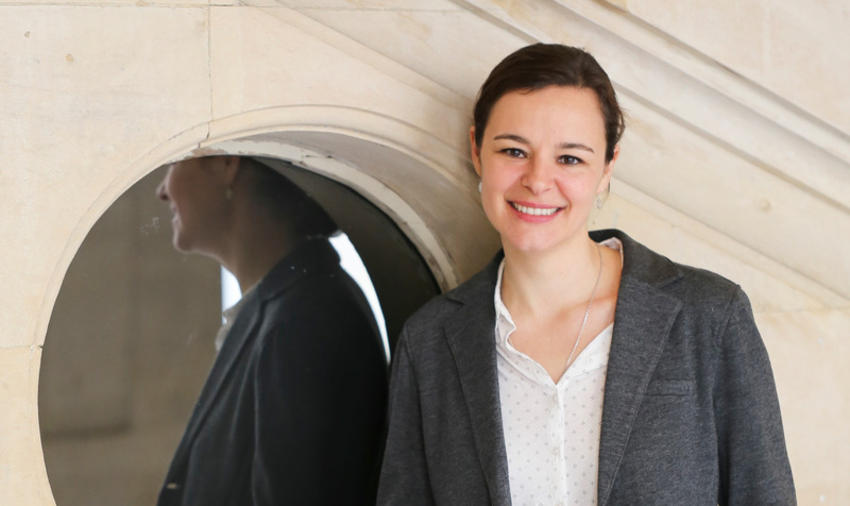Jeanne Hagenbach awarded an ERC Starting Grant
Jeanne Hagenbach awarded an ERC Starting Grant

 Jeanne HAGENBACH, chercheuse CNRS. Crédits : Caroline Maufroid / Sciences Po
Jeanne HAGENBACH, chercheuse CNRS. Crédits : Caroline Maufroid / Sciences Po
7 september 2019
The European Research Council (ERC) officially published the list of projects it has retained for its 2019 “Starting Grants” Call.
As a reminder, ERC grants aim to encourage the highest quality research in Europe through competitive funding and to support investigator-driven frontier research across all fields, on the basis of scientific excellence, “Starting Grants” being dedicated to early-career researchers with a scientific track record showing great promise.
The project “Motivated Reading of Evidence” submitted by Jeanne Hagenbach, CNRS Researcher and Professor at the Sciences Po Departement of Economics, is one of the 41 projects hosted by French Institutions which have been selected.
This success is added to an already impressive list of distinctions for Jeanne Hagenbach. In 2009 she was awarded two prizes for her doctoral dissertation «Communication stratégique et réseaux »: the Richelieu Thesis Prize of the Chancellerie des Universités de Paris and the Thesis Prize of the French Economic Association. In 2012 the Fondation Banque de France awarded her the « Young Researcher in Economics Prize». Last, but not least, she was distinguished by the CNRS which awarded her the Bronze Medal in 2016.
Jeanne Hagenbach’s work within the field of microeconomics draws on game theory and experimental economics. Unabashedly theoretical, Professor Hagenbach’s research revolves around models of communication in game theory. Her objective is to understand in which strategic situations information held by economic agents is passed on the most effectively.
The project is perfectly aligned with this research: Jeanne Hagenbach wishes to study how individuals interpret hard information in ways that serve their own purposes. She seeks to identify the goals that nudge the reading of evidence in systematic ways. She also wants to study how agents manage to distort this reading, for example by choosing not to read or reason about available evidence.









